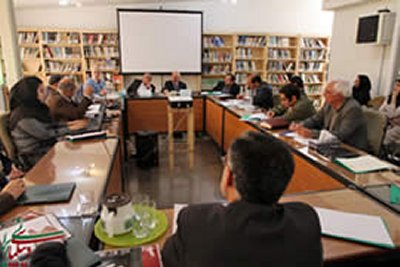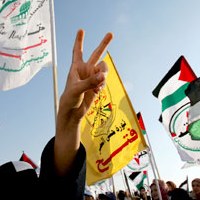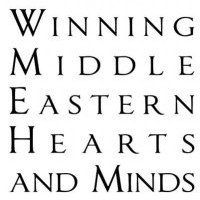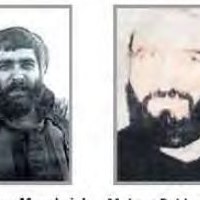![]()
Sun, Nov 28, 2010 | The Meir Amit Intelligence and Terrorism Information Center
Iranian Diplomacy Oil and Atom Conference: Different Voices On Nuclear Issue
Iranian Diplomacy, a website dedicated mostly to foreign policy issues and known for its usually pragmatic political views, held a conference this week titled “Oil and Atom: from the nationalization of the oil industry to localization of the nuclear technology”. Attended by diplomats, academia members, and students, the conference was aimed to look into the similarities between the nationalization of the oil industry in the early 1950s by PM Mohammad Mossadegh and Iran’s current nuclear program.
In the lecture he gave at the conference, international relations expert Davoud Hermidas-Bavand provided an extensive historical overview of the nationalization of oil in the early 1950s. Speaking about the nuclear program, he said that while the nuclear energy issue was similar to the nationalization of oil in its sensitivity for Iranian society, it was different as far as the legal aspects were concerned. According to Hermidas-Bavand, former PM Mohammad Mossadegh ascribed more importance to the political aspects of the nationalization of oil than to the legal aspects, considering it to be a means to end the British influence in Iran.
Dr. Beheshti Pour discussed the UN resolutions passed against Iran in recent years, claiming that, contrary to President Ahmadinejad’s opinion, they should not be viewed as worthless “pieces of paper”. According to Beheshti Pour, Iran had considerable technical success with its nuclear program, but failed in the legal battle and was unable to prevent the passing of Security Council resolutions against it. He said that the nuclear issue became a means for the U.S. to exert pressure on Iran as part of the ongoing conflict between the two countries. He noted that, as far as the technical aspect is concerned, the nuclear program was a source of national pride considering the role played by young scientists in its implementation and the cooperation between various groups in its planning and execution, making it a success despite the sanctions imposed on Iran. He noted that the nuclear program belonged to all Iranians, and that the Iranian people must not allow domestic political differences of opinion to influence their views on the issue.
Political science expert Dr. Sadeq Zibakalam, considered one of the major reformist bloc intellectuals, drew the most attention at the conference. Zibakalam noted that, similarly to the nationalization of oil, the issue of nuclear technology reflected Iran’s struggle against the world’s superpowers. Nevertheless, he said, there are many differences between the nationalization of oil and the nuclear program, making them impossible to compare. Zibakalam claimed that Iran was not the only country that managed to achieve success in the sphere of nuclear technology, and that it created no new technology by developing its nuclear program. He noted that the nuclear program was, in fact, one of Iran’s most important projects after the Iran-Iraq War, and that significant progress had been made, but claimed that the progress did not reflect upon the country’s other industries. As an example, he mentioned the incident where Iranian helicopters were unable to put out the huge fires that raged in the forests of northern Iran, and claimed that even countries that obtained nuclear technology, including North Korea and Pakistan, still required economic assistance from other countries.
In another context, Zibakalam claimed that the nuclear program reduced the freedom of expression in Iran. He noted that, when the oil industry was nationalized in the early ‘50s, there was no problem voicing opinions against the nationalization. Various newspapers criticized it, and PM Mossadegh did nothing to stop the criticism. The nuclear program, on the other hand, poisoned the political atmosphere by making it impossible to freely debate the issue. He argued that the nuclear issue must be raised for serious discussion regardless of who the current president is or who controls the Majles. It was his assessment that, in the next several years, it will be necessary to discuss the question of whether initiating a standoff with the whole world over the nuclear issue is the right thing to do, and whether by doing so Iran can secure its economic and other interests. Zibakalam further stated that while even the Truman-led American administration had supported Iran’s stance early in the oil nationalization period, now even its neighbors and the Muslim world do not support it (Diplomasi-ye Irani, November 22).
In recent years, Zibakalam has criticized the Iranian regime’s nuclear policy on several occasions. Last March, the senior academia member called on the leaders of his country to agree to the West’s proposal to transfer enriched uranium abroad in exchange for nuclear fuel, and issued a warning about the consequences of Iran’s refusing the proposal.
Read also: Mohammad Mossadegh Eccentric Nationalist and Ousted Prime Minister (Thu, Dec 10, 2009), CIA and Iran – Zahedi’s Version (Thu, Dec 10, 2009) and The CIA and Iran (Thu, Dec 10, 2009).



 RSS
RSS











Iranian Diplomacy Oil and Atom Conference: Different Voices On …: Zibakalam noted that, similarly to … http://bit.ly/g8XgEQ #asematy
Iranian Diplomacy Oil and Atom Conference: Different Voices On Nuclear Issue | #Iran #nuclear #Program #Oil #Mossadegh http://j.mp/i1lc0T